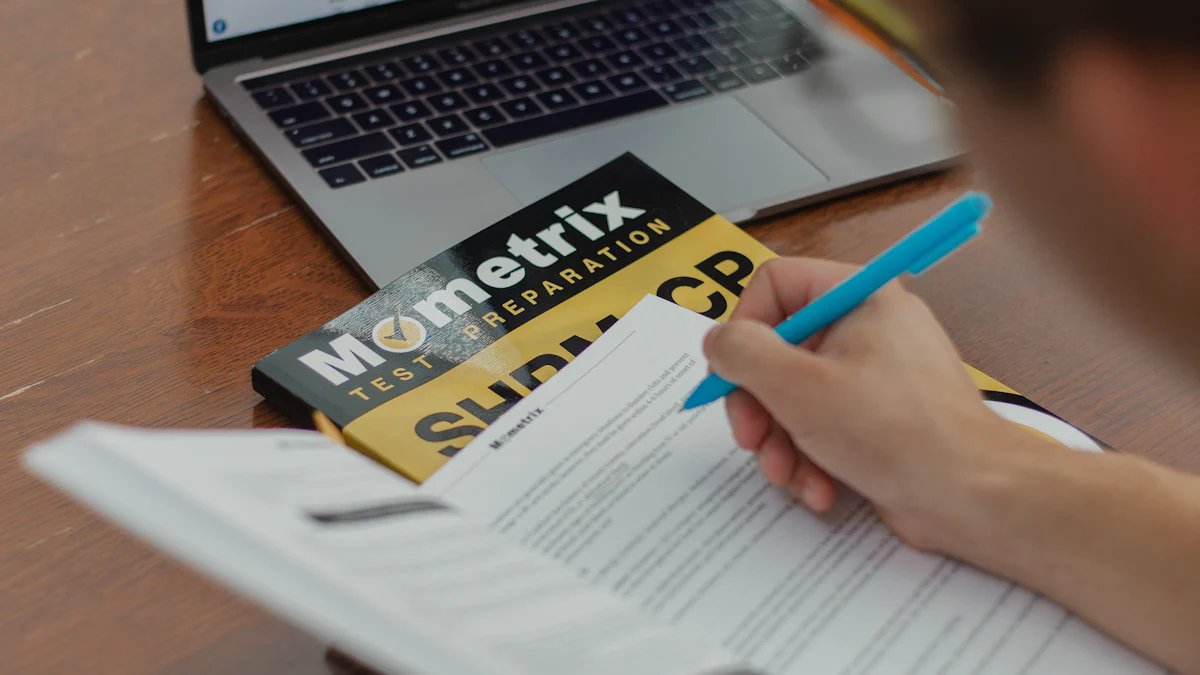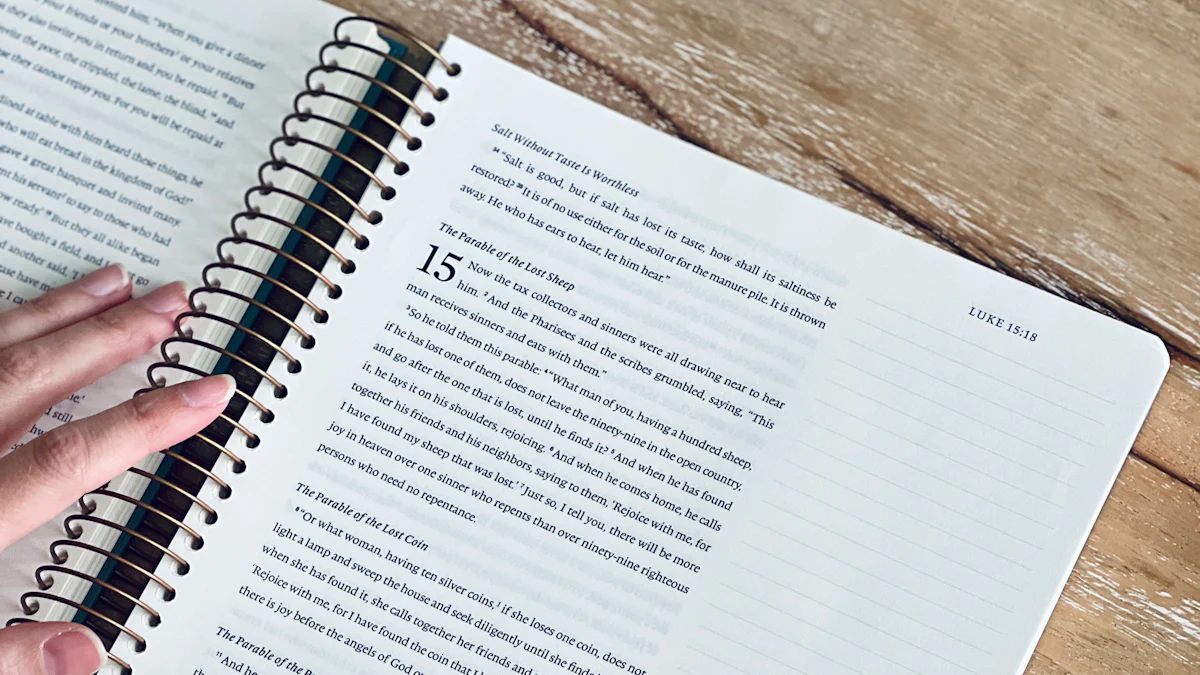How to Write a Winning Cover Letter for an Internship in 2025
Try Aihirely for
Smarter Interview Prep
Experience real-time AI support tailored to your Resume.
Boost your confidence and ace every question with
AI Mock Interview.

Image Source: pexels
Landing an internship in 2025 isn’t just about your resume. A strong cover letter can make you stand out in a crowded field. It shows your passion, explains how your experiences fit the role, and even sparks meaningful conversations during interviews. Ready to learn how to write a cover letter for an internship? Let’s dive in!
Key Takeaways
-
A good cover letter shows who you are and your excitement. It should say why you want the internship and how your skills match the job.
-
Customize your cover letter for the internship. Learn about the company and match your skills to their needs to show real interest.
-
Check your cover letter closely. Fix mistakes and use a neat format to leave a strong first impression.
How to Write a Cover Letter for an Internship
What is a cover letter for an internship?
A cover letter for an internship is your chance to introduce yourself to a potential employer. It’s more than just a formality—it’s a way to show your personality, enthusiasm, and how you’re a great fit for the role. Think of it as a personal pitch. You’re explaining why you want the internship and how your skills, experiences, and goals align with the company’s needs.
Your cover letter should include key details like your name, contact information, and the company’s name and address. It also needs to highlight your coursework, extracurricular activities, and what you hope to achieve during the internship. A well-written cover letter can make a lasting impression and set you apart from other applicants.
Why is a cover letter important for internships in 2025?
In 2025, internships are more competitive than ever. Employers aren’t just looking for qualifications—they want to see passion, creativity, and a genuine interest in their company. A cover letter gives you the chance to stand out by showcasing these qualities.
Trends in 2025 emphasize personalized and engaging cover letters. Avoid generic templates. Instead, focus on crafting a message that grabs attention and highlights your unique skills. This is your opportunity to connect with the hiring manager on a deeper level and show them why you’re the perfect fit for their team.
How does a cover letter complement your resume?
Your resume lists your qualifications, but your cover letter tells the story behind them. It explains how your experiences, even unpaid ones, make you a strong candidate. For example, you can highlight soft skills like communication or time management by sharing specific examples.
A cover letter also lets you express enthusiasm for the role. Employers want to know you’re excited about the opportunity, and this is the perfect place to show it. Together, your resume and cover letter create a complete picture of who you are and why you’re the right choice for the internship.
Structuring Your Cover Letter Step by Step

Image Source: unsplash
Header: Key details to include and formatting tips.
Your header is the first thing a hiring manager sees, so make it count. Use a traditional format that includes your contact information, the date, and the recipient’s details. Align everything to the top-left corner for a clean, professional look.
Here’s what to include:
-
Your full name.
-
Your city and state.
-
Your phone number and email address.
-
A link to your LinkedIn profile or portfolio (if relevant).
This structure not only looks polished but also ensures the hiring manager can easily reach you.
Greeting: Addressing the hiring manager effectively.
Start your cover letter with a personal touch. Address the hiring manager by their full name if you know it. If not, “Dear Hiring Manager” works well. Avoid generic phrases like “To Whom It May Concern.” They feel impersonal and outdated. Taking the time to find the right name shows effort and makes a great first impression.
Introduction: Crafting a strong opening statement.
Your opening line should grab attention immediately. Think of it as your hook. For example, you could share a unique skill or a memorable achievement. Something like, “Last December, I led my team to win a national coding competition, and I’m excited to bring that same energy to your internship program.” A strong start sets the tone for the rest of your letter.
Body: Showcasing your skills, achievements, and enthusiasm.
This is where you shine. Highlight your skills and achievements with specific examples. Use numbers or metrics when possible. For instance, “I increased event attendance by 30% as the president of my college’s marketing club.” Action verbs like “led,” “created,” or “improved” make your accomplishments stand out. Don’t forget to show enthusiasm for the role and explain how your skills align with the company’s needs.
Conclusion: Ending with a call to action.
Wrap up your letter with confidence. Reiterate your interest in the internship and invite the hiring manager to take the next step. For example, “I’d love the opportunity to discuss how my skills can contribute to your team. Please feel free to contact me at your earliest convenience.” A clear call to action leaves a lasting impression.
Writing a Cover Letter Without Professional Experience
Highlighting transferable skills and academic achievements
You might think, “How can I write a cover letter without professional experience?” The good news is, you already have valuable skills! Transferable skills are abilities you’ve gained from other experiences that apply to the internship. For example:
-
Did you lead a group project? That’s teamwork and leadership.
-
Have you worked a part-time job? That shows responsibility and time management.
-
Earned certifications or completed training? Those are accomplishments worth mentioning.
Even your academic journey is full of opportunities to shine. Talk about what you’ve learned during your degree and how it connects to the internship. If you’ve received awards or maintained a high GPA, include that too. These details show you’re hardworking and capable.
Using coursework, projects, and extracurriculars as examples
Your coursework and extracurriculars can tell a powerful story. Did you complete a project that required problem-solving or creativity? Mention it! For instance, if you built a robot in your robotics club or organized events for a student organization, those experiences highlight your initiative and skills.
Extracurricular activities also demonstrate your versatility. Coaching a youth soccer team shows leadership. Competing in debate tournaments proves you’re a strong communicator. These examples make your cover letter stand out and show you’re more than just grades on a transcript.
Demonstrating enthusiasm and a willingness to learn
Employers love candidates who are eager to grow. Show your excitement for the company’s mission and values. Use positive language to express your motivation. For example, say, “I’m thrilled about the chance to contribute to your team and learn from industry experts.”
Be authentic. Let your personality shine through. If you’re passionate about the role, it’ll come across in your writing. Enthusiasm and a willingness to learn can often outweigh a lack of experience.
Tailoring Your Cover Letter to the Internship

Image Source: unsplash
Researching the company and understanding its values
Before you start writing, take time to learn about the company. Visit their website, read their mission statement, and check out recent news or projects. What do they stand for? What are their goals? Understanding these details helps you connect your message to their values.
For example, if the company values innovation, mention a time you solved a problem creatively. If they focus on teamwork, highlight your experience collaborating with others. This research shows you’re genuinely interested in the company, not just looking for any internship.
Here’s a quick way to align with their values:
-
Customize your message to reflect those values.
-
Show enthusiasm for their mission.
-
Be authentic—use your own voice and experiences.
Aligning your skills with the internship requirements
Once you understand the company, match your skills to what they’re looking for. Read the internship description carefully. What skills or qualities do they mention? Make a list and think about how your experiences fit.
For instance, if they want someone with strong communication skills, talk about a time you gave a presentation or led a group discussion. If they’re looking for problem-solving abilities, share an example of how you tackled a challenge. This step shows you’ve paid attention to their needs and can deliver what they’re asking for.
Using specific examples to show your fit for the role
Don’t just say you’re a good fit—prove it with examples. Think about moments when you demonstrated the skills they want. Did you organize a successful event? Lead a team project? These stories make your cover letter more personal and memorable.
Let’s say the internship involves marketing. You could write, “As the social media manager for my school’s club, I increased engagement by 40% in three months.” Numbers and results make your examples even stronger.
Balancing personalization and professionalism is key. Share your unique experiences, but keep the tone professional. Personalize your greeting, opening, and closing to make your letter stand out. Proofread carefully to ensure it’s polished and error-free.
By tailoring your cover letter, you’re showing the employer you’ve done your homework and are genuinely excited about the opportunity. That’s how to write a cover letter for an internship that gets noticed.
Proofreading and Formatting for a Professional Finish
Avoiding common mistakes when proofreading
Proofreading might seem like a small step, but it can make or break your cover letter. Mistakes like typos or grammar errors can make you look careless. To avoid this, always double-check your work. Even if you use a word processor with spell check, it won’t catch everything.
Here are some common mistakes to watch out for:
-
Skipping proofreading entirely.
-
Overlooking grammatical or spelling errors.
-
Writing a letter that’s too long or too short. Aim for one page.
Take your time. Read your letter out loud to catch awkward phrasing. Better yet, ask a friend or mentor to review it. A fresh pair of eyes can spot things you might miss.
Best practices for formatting and readability
A clean, professional format makes your cover letter easier to read. Stick to a standard font like Arial or Calibri in 10–12 point size. Align your text to the left and use one-inch margins on all sides.
Here’s a quick checklist for formatting:
-
Add a blank line between sections.
-
Avoid indenting paragraphs.
-
Keep your letter between 250–400 words.
These simple steps ensure your letter looks polished and professional.
Tools to help polish your cover letter
You don’t have to do it all alone. Tools like Grammarly or Hemingway can help you catch grammar mistakes and improve readability. Reading your letter aloud can also highlight areas that feel clunky.
For extra feedback, ask a mentor or peer to review your letter. They can offer valuable insights and help you refine your message. Before submitting, double-check the company’s guidelines to ensure your letter meets their requirements.
With these tips, your cover letter will shine!
Writing a winning cover letter takes effort, but it’s worth it. By structuring your letter effectively, tailoring it to the internship, and maintaining professionalism, you can stand out. Remember these key tips:
-
Connect your achievements to the job requirements.
-
End with a confident call to action.
Tailoring your letter shows genuine interest and helps you shine. It’s also a chance to express your excitement and showcase your communication skills.
Don’t wait! Start brainstorming your skills and achievements today. Use a template to save time, and organize your ideas with bullet points. You’ve got this! 🚀
FAQ
What if I don’t know the hiring manager’s name?
No worries! Use “Dear Hiring Manager” or “Dear [Department] Team.” It’s better than guessing or using outdated phrases like “To Whom It May Concern.”
Tip: Check LinkedIn or the company’s website for clues. A little research can go a long way! 🕵️♀️
How long should my cover letter be?
Keep it short and sweet—one page max. Aim for 250–400 words. Focus on quality over quantity to keep the reader engaged.
Note: Hiring managers skim. Make every word count! ✍️
Can I reuse the same cover letter for multiple internships?
Not exactly. Tailor each letter to the specific role and company. Highlight skills and experiences that match their requirements.
Pro Tip: Save time by creating a customizable template. Just tweak the details for each application! 🚀
